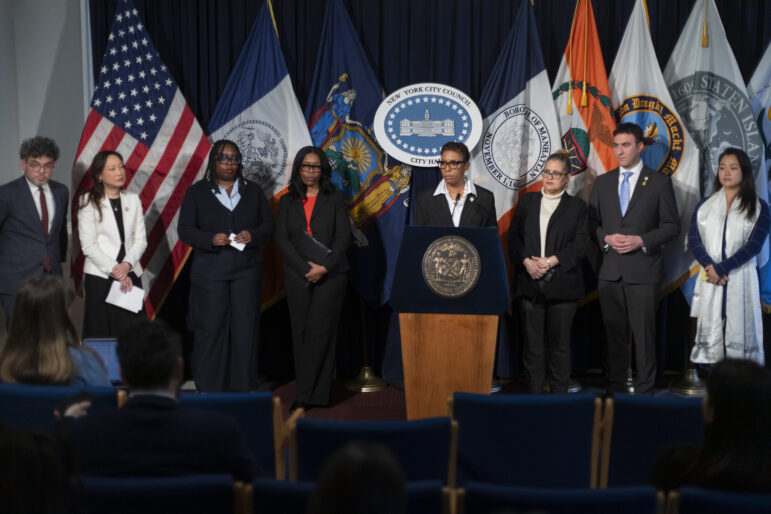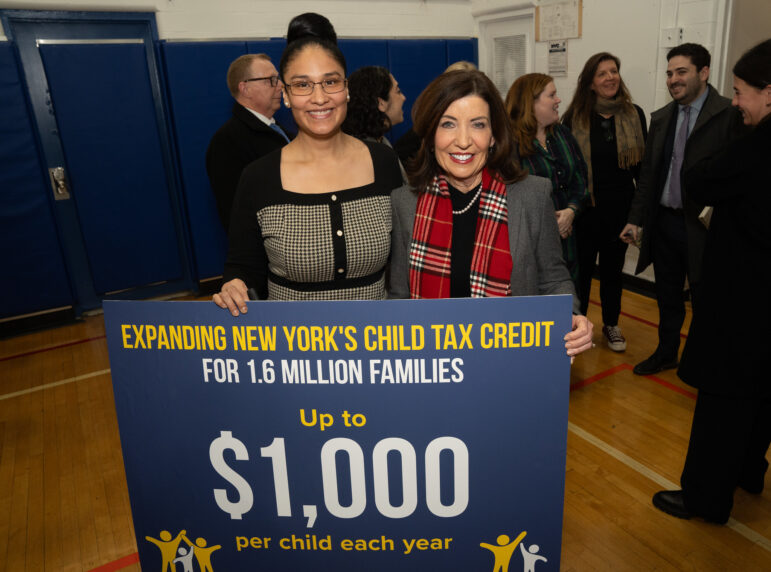The people Chaumtoli Huq works with have this in common: they tend to be immigrant, multilingual, low-waged, temporary, on-call, short-term, contractual or day labor, and they usually work long, tedious hours on grueling jobs.
Huq is at home with them. Born in Bangladesh and raised in the working-class Bronx neighborhood of Parkchester, class is her first identity. “I came to my consciousness through economics,” says Huq. “I knew poor is poor is poor.”
Huq’s mother, Saqui, raised her singlehandedly, working at minimum wage jobs until she got a position as a research assistant in molecular biology at Albert Einstein College of Medicine. Her mother’s unionized job gave Huq financial security: In addition to health benefits, the hospital workers’ union 1199 gave Huq a scholarship to study political science at Columbia. “I realized early on the importance of a strong labor movement for working families,” says Huq, “especially in the immigrant community.”
When Huq decided to become a civil rights attorney, her mother stood behind her. “Chaumtoli could have been a corporate lawyer, but she was sensitive to working-class issues,” says Mrs. Huq, “and I supported her choice.”
Huq had just started out as a staff attorney with the Asian American Legal Defense and Education Fund (AALDEF) in November 1999 when the Taxi and Limousine Commission launched “Operation Refusal,” a draconian crackdown and sting operation seizing vehicles and revoking licenses of taxi drivers caught refusing to pick up passengers.
Huq filed a federal lawsuit on behalf of the New York Taxi Workers Alliance and four drivers, crafting a difficult argument to establish that the TLC infringed drivers’ constitutional rights, exceeded its statutory authority and flouted established administrative and regulatory procedures. If successful–she’s still waiting for a decision–this first federal lawsuit for taxi drivers could set a precedent so that independent contractors’ associations can represent their members in federal court.
But the Huq action formula involves much more than just litigation. She made headlines in 2000 when she blended education, organizing, and law to tackle the case of a domestic worker who worked for a diplomat from Bahrain. The worker, a Bangladeshi woman, was being held in virtual slavery, forbidden from leaving the house and paid well below minimum wage. When she sued her employer, he invoked diplomatic protection.
So Huq and others waged a p.r. campaign, holding protests that garnered coverage in Bahraini and Bangladeshi media, as well as here in New York. “The law was not really in our favor,” says Huq. “It wasn’t a slam-dunk, but we made many good arguments.”
It worked. Not only did the worker get a settlement, but the U.S. State Department promised to prepare a detailed new memorandum spelling out the obligations of UN diplomats to the 800 foreign women they employ as domestic workers in New York.
In September 2001, Huq got a fellowship from George Soros’ Open Society Institute to do similar work for both yellow cab and car service drivers. Since September, she’s spent most of her time helping drivers fill out forms and claim benefits, as well as speaking out against racial profiling and detention of immigrants. But ultimately, she hopes to create a replicable model for using law, policy, education and organizing to help “not just drivers, but all contingent labor who are excluded from traditional labor protection.” She’s calling it the “Wheels of Justice.”







